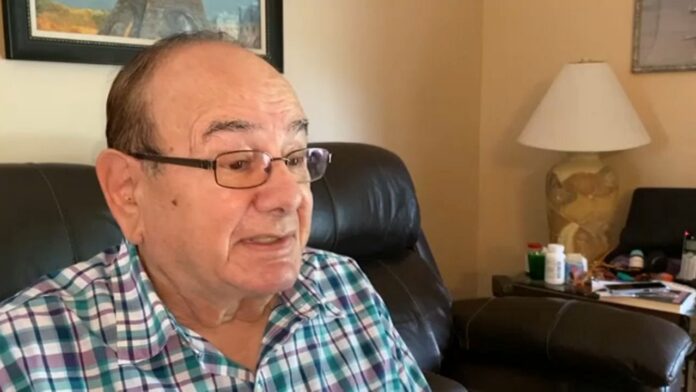ZEPHYRHILLS, Fla. — May is National Stroke Awareness Month, and doctors are reminding the public that a stroke doesn’t always come with the signs that you might expect.
Alfred Nicolosi, 78, said he was making dinner on February 25, or as he calls it, “the night the lights went out.”
Nicolosi said he stepped into the living room to turn on the television when it happened.
What You Need To Know
- May is National Stroke Awareness Month
- While a stroke is mainly thought of as a condition that impacts the brain, it can also affect vision through a stroke of the eye
- Alfred Nicolosi suddenly lost vision in his right eye as a result of a stroke of the eye in February
- A vascular neurologist with AdventHealth Tampa says this kind of stroke typically has no warning signs and patients should seek medical care as soon as they do realize something is wrong
“My right eye started seeing colors, like rainbow colors,” he said.
Then, he said he couldn’t see anything out of that eye.
“Called the doctor right away, and he said, ‘You’re having a mini stroke,’ and that scared the living daylights out of me,” Nicolosi said.
AdventHealth Tampa Vascular Neurologist Dr. Karl Kasischke said doctors performed a retinal ultrasound when Nicolosi was brought to the emergency department there. It showed he was having a stroke of the eye.
“Most people do not realize that the stroke can also hit the retina, which is, by anatomy definition, part of the brain. So, a blood clot that dislodges into the retinal artery and occludes it, causes you to lose your vision, is actually a stroke to the eye,” Kasischke said.
Nicolosi was given a clot-busting medication called tPA and monitored.
“While I was in the ICU, I started to see shadows, and with the shadows, it started to give me a little bit of color,” Nicolosi said.
Tests also showed he had blockage in his carotid artery. Nicolosi said doctors told him that may have led to the stroke. He had surgery for that, as well, and today, his vision has partially returned.
“My eye is like dirty glasses,” he said. “Can I see you? Yeah, I can see you, but it’s like I need to clean my glasses.”
“His vision has improved to about 70 percent, which is unheard of. This is the best outcome I’ve ever seen,” said Kasischke.
Kasischke said there aren’t typically warning signs ahead of this kind of stroke. He said the clot buster can only be given up to four and a half hours after onset, so it’s important for patients to seek help as soon as they realize something is wrong, as Nicolosi did.
“I was blessed,” Nicolosi said. “I really didn’t think I was going to come out of this at all. So, I’m lucky. I get to see again.”
To learn more about stroke and find resources, visit American Stroke Association.








